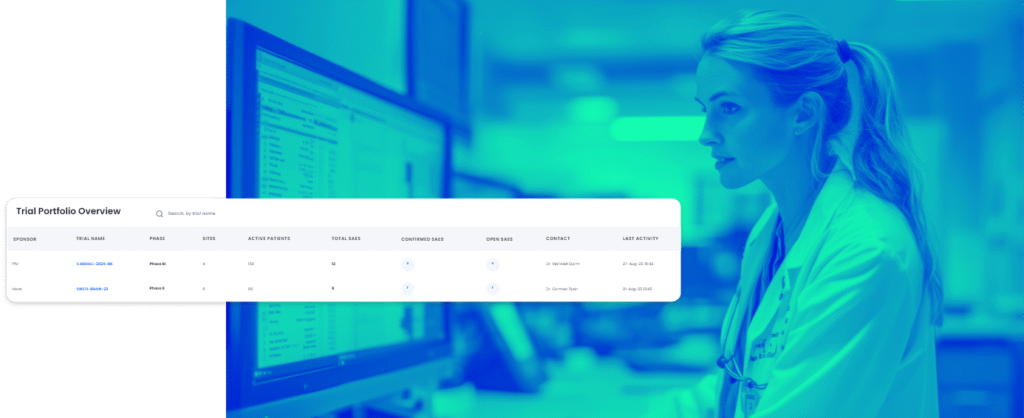Real time safety for the therapies of tomorrow
Because every patient story matters. Keyp is a safety intelligence platform that bridges the critical gap between emergency care, trial sites, and sponsors. By capturing real-time adverse events at the point of care, we transform fragmented narratives into structured data keeping patients safer, trials stronger, and sponsors ready for tomorrow’s therapies.

When safety data is delayed, patients pay the price
Current pharmacovigilance workflows miss the earliest signals of harm especially when patients present to emergency departments. Sponsors rely on delayed, manual, and incomplete data capture that leaves blind spots in clinical development and post-marketing safety studies. The result? Slower trials, regulatory risk, higher costs, and most importantly patients left unprotected.
40%
of SAEs missed
In oncology trials, up to 40% of Serious Adverse Events go undetected or are reported late
€350K
per day
Conservative (could be as high as 1M) cost of regulatory holds and trial extensions due to missed safety signals
21%
submission delays
Of trials face regulatory submission delays due to incomplete safety data
One simple system, built for patients, sites, sponsors, and regulators.
Keyp delivers real-time, structured safety data from ED to sponsor protecting patients, empowering sites, and giving sponsors regulatory readiness from day one.
- For Patients: Faster recognition, safer care, stronger protection.
- For Sites: Low-friction reporting, less paperwork, more time for care.
- For Sponsors: Continuous SAE visibility, compliance confidence, accelerated submissions.
- For Regulators: A defensible safety net, built for novel therapies like CAR-T and gene therapy.
to explore pilots, partnerships, or investment.

Clinicians, Technologists, and Scientists working together for safety
Keyp is founded by a cross-disciplinary team bringing together frontline emergency medicine, oncology, data science, and product design. Together, we are building the missing safety layer for the future of clinical trials.
